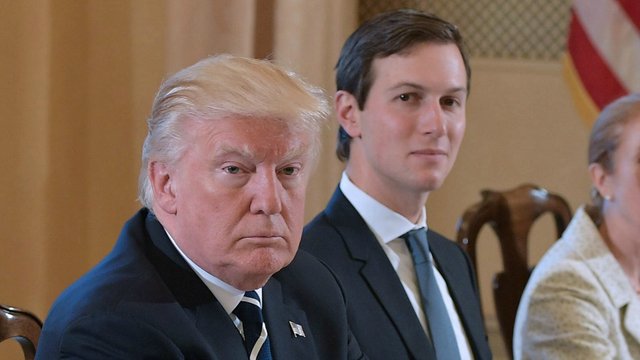United States President Donald Trump is expected to decide this week when his administration will release its much-guarded plan for the Middle East.
According to a report Sunday evening by Israel’s Channel 10, the American president is scheduled to meet with senior figures in his administration to decide on a date for the plan’s release.
Secretary of State Mike Pompeo and Trump’s son-in-law and senior adviser Jared Kushner are among the administration officials expected to help Trump plan out the “Deal of the Century” unveiling.
National Security Advisor John Bolton, Middle East Envoy Jason Greenblatt and US Ambassador to Israel David Friedman, who reportedly flew back to Washington to participate in the meeting, are also expected to be present.
Although senior officials within the administration are said to have advised Trump to delay the plan’s unveiling if Israel holds early elections, Trump is reportedly still eyeing a December 2018 release.
Ambassador Friedman was reported to advise against releasing the plan during an Israeli election cycle, arguing that it would transform Knesset elections into a national referendum on Washington’s policy agenda for the region.
The recent Israeli political turmoil since the resignation of Defense Minister Avigdor Lieberman (Yisrael Beiteinu) and the looming threat of early elections are said to be key considerations in the timing of the plan’s release.
Although he began his term with public displays of friendship with Israeli Prime Minister Binyamin Netanyahu (Likud), Trump had adopted a more aggressive tone in recent weeks, saying he wants his administration’s plan published by the start of 2019.
It has also become more clear in recent months that Trump’s plan will likely follow Washington’s traditional two-state formula and demand the partition of the Land of Israel into separate Jewish and Palestinian states.
French President Emmanuel Macron had been making public statements in October that Paris would release a proposal of its own if Trump doesn’t publicize his plan and begin its implementation following US midterm elections on November 6.
Although Macron had been brought in as a “bad cop” to help the Trump administration pressure Israel while allowing the American president to maintain a “pro-Israel” image, very little has been heard from him on the issue since Israel’s coalition crisis began, leading many analysts to assume Trump’s team wants to avoid releasing its plan as Israel goes to elections.
Prime Minister Netanyahu would likely take a significant electoral hit from an aggressive American two-state plan due to the fact that Netanyahu’s political opponents have for many years attacked him for harming Israel’s relationship with Washington.
The prime minister has so far been perceived to enjoy a positive relationship with Trump, who has until recently been vague regarding his commitment to America’s traditional two-state policy.
While the best image for Netanyahu leading the Likud into elections would be a prime minister both close to the American administration and determined to protect the Land of Israel, a strong US push for partition would likely force him to chose between his relationship with Washington and his commitment to the Jewish homeland.
If early Israeli elections are on the horizon, Trump’s team would likely find it more beneficial to first allow Netanyahu an electoral victory and significant political mandate from the Israeli public before pressuring him to comply with Washington’s two-state agenda.





